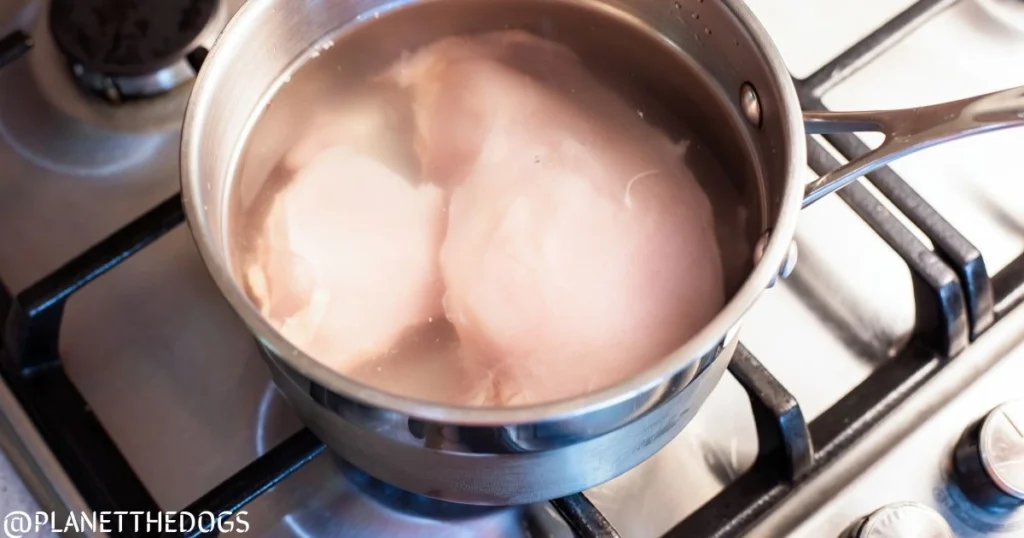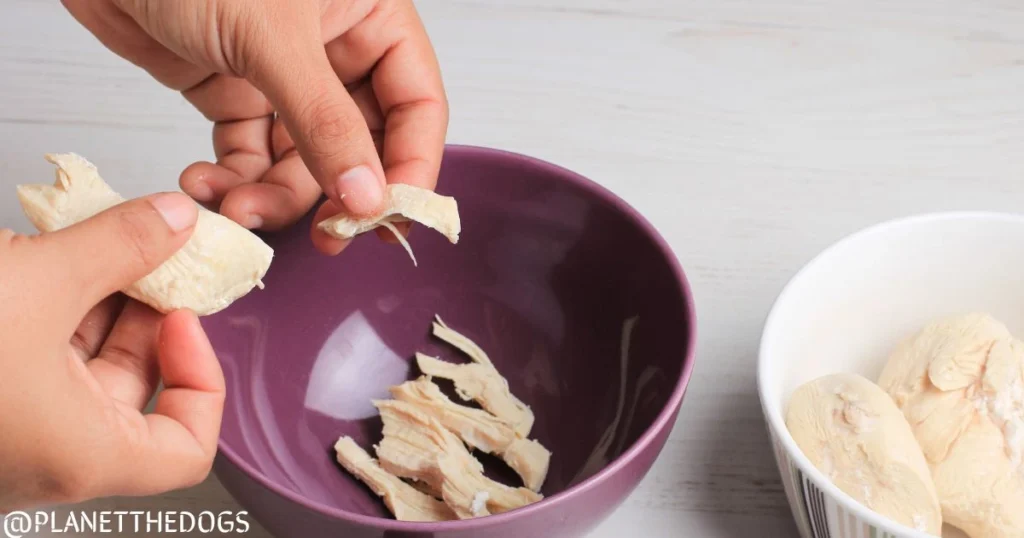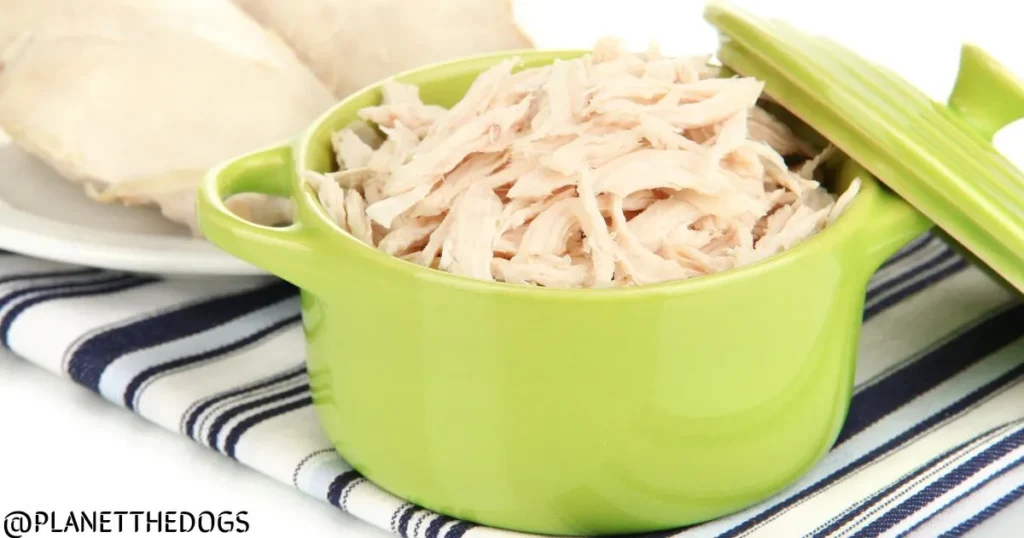How to Boil Chicken for Dogs: A Simple Guide for Healthy Meals
Want to give your dog a healthy, tasty, and easy-to-digest meal? Learn how to boil chicken for dogs, a simple way to make a nutritious, protein-rich dish. It’s great for dogs with sensitive stomachs or as a natural alternative to store-bought food. Let’s explore this easy and safe recipe for your furry friend!
Table of Contents
Key Takeaways
- How to boil chicken for dogs is a simple and effective way to prepare a nutritious meal for your dog.
- Boiled chicken provides a protein-rich, easily digestible, and gentle-on-the-stomach option for your canine companion.
- Properly preparing and cooking the chicken, as well as following storage and serving guidelines, are key to ensuring your dog’s safety and health.
- Boiled chicken can be a versatile addition to your dog’s diet, whether as a complete meal, a topper for dry food, or a special treat.
- Consulting with your veterinarian can help determine the appropriate amount and frequency of boiled chicken in your dog’s diet.
Benefits of Boiled Chicken in Your Dog’s Diet
Boiled chicken is a top choice for your dog’s diet. It’s simple, yet packed with benefits for their health. This ingredient can greatly improve your dog’s well-being.
Nutritional Value for Canine Health
Boiled chicken is full of high-quality protein, vitamins, and minerals. It’s easy on the stomach, perfect for dogs with sensitive tummies or those feeling under the weather. Plus, it’s free from harmful additives, making it safe for dogs to eat. For more information on dog nutrition, check out our Dog Nutrition & Diet page.
Digestibility and Protein Content
The protein in boiled chicken for dogs is easy for dogs to digest. This is great for active, growing, or protein-needy dogs. This ensures your dog receives all the essential nutrients they need to thrive.
When to Include Boiled Chicken in Dog Meals
How to boil chicken for dogs is a great addition to your dog’s meals. It’s nutritious and tasty. It’s especially helpful when your dog is sick or during diet changes, as it’s gentle on their stomach.
How to Boil Chicken for Dogs

Boiling chicken is a simple way to add protein to your dog’s diet. It’s easy to how to boil chicken for dogs or cooking chicken for dogs. This method is good for your dog’s health.
Choose boneless, skinless chicken breasts or thighs. Don’t use seasonings or spices, as they can harm dogs. Put the chicken in a pot and cover it with water. Make sure the chicken is fully covered.
Heat the water until it starts boiling, then reduce the heat to a gentle simmer. Let the chicken simmer for 12-15 minutes. It should be cooked through and the internal temperature should be 165°F.
“Boiling chicken is a great way to provide your dog with a lean, nutrient-dense protein source that is easy to digest and well-tolerated by most canines.”

After cooking, use a slotted spoon to move the chicken to a plate or cutting board. Let it cool down completely. Then, shred or dice it into small pieces. This makes sure the chicken is safe for your dog to eat.
Adding boiled chicken to your dog’s meals can give them protein, vitamins, and minerals. It’s good for their health. Always talk to your vet about how much chicken to feed your dog.
Safety Tips and Best Practices for Preparing Dog-Friendly Chicken
Feeding your furry friend safely is key. Choose the right chicken and avoid harmful seasonings. This ensures your dog gets a nutritious and safe human food for dogs.
Choosing the Right Cut of Chicken
Opt for boneless, skinless chicken breasts or thighs. These are lean and safe for your dog. Avoid chicken with bones to prevent choking or internal harm.
Avoiding Harmful Seasonings and Additives
Don’t add seasonings, sauces, or ingredients toxic to dogs. Avoid onions, garlic, salt, and other harmful human seasonings. Use plain, unseasoned chicken for a safe meal.
Proper Temperature and Cooking Time
Cook the chicken to 165°F (74°C) to kill bacteria. Cook it until it’s tender but not overcooked. Let it cool before serving to your pet.
“Preparing safe and nutritious meals for your dog is a labor of love. By following these simple guidelines, you can ensure your canine companion enjoys a delicious and healthy cooking chicken for dogs experience.”
Storage and Serving Guidelines for Boiled Chicken

Storing and serving boiled chicken right is key for your dog’s meals. It’s best to refrigerate or freeze the cooked chicken right after you make it. This keeps it fresh and safe for your dog.
For a few days, you can store boiled chicken in the fridge. Just take out what you need, warm it a bit, and mix it with your dog’s food. This keeps the chicken’s nutrients and taste good.
If you want to keep it longer, freeze the chicken in airtight containers or bags. Frozen chicken lasts up to 3-4 months. Thaw it in the fridge overnight before adding it to your dog’s meals. This way, the chicken stays fresh and safe for your dog.
FAQ
What are the benefits of boiling chicken for dogs?
Boiled chicken is great for dogs because it’s full of protein and amino acids. It’s also easy for dogs to digest. It’s a good choice when your dog is sick or needs a change in diet.
How do I properly boil chicken for my dog?
First, pick boneless, skinless chicken breasts or thighs. Put the chicken in a pot and cover it with water. Bring it to a boil, then lower the heat and simmer for 15-20 minutes.
Once it’s done, shred or chop the chicken. Let it cool down completely before giving it to your dog.
What safety precautions should I take when preparing boiled chicken for my dog?
Don’t add any seasonings, salt, or additives to the chicken. Make sure it’s cooked to 165°F (74°C) to kill bacteria. Always keep the chicken in the fridge or freezer to stay safe and fresh.
How should I store and serve boiled chicken for my dog?
Cooked chicken can last 3-4 days in the fridge or 2-3 months in the freezer. Thaw it in the fridge before warming it up a bit. Mix it into your dog’s food, making sure it’s the right size for their needs.
For more pet food and health tips, check out external resources like PetMD and American Kennel Club.








